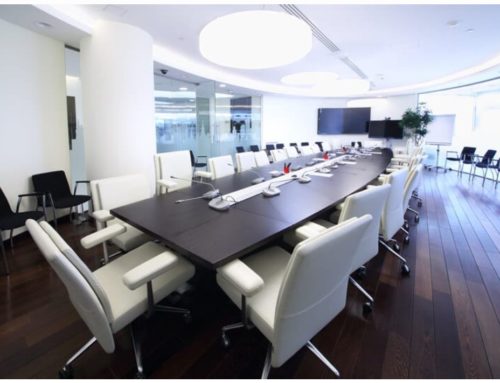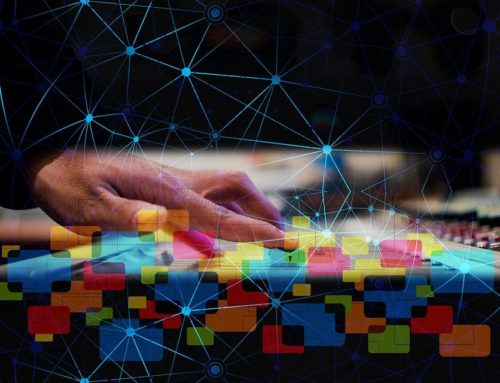Blockchain (or Distributed Ledger Technology) has become a buzzword in the past couple of years and it’s being tested in various industries. In this experimental phase, technology is rapidly maturing and opening new possibilities, especially in terms of efficiency and cutting costs. Businesses are taking note, but are also puzzled about the potential benefits and the way this technology can be utilized for gaining competitive advantage.
Initially used for cryptocurrency, Blockchain technology has seen its promising future in the techno industry quickly. Today as the Blockchain continues to mature, it finds several adoption areas, and ERP is one of them.
ERP vendors intend to use Blockchain and ERP together to integrate the system in a safer and trackable manner utilizing immutable records for everything in the business areas like supply chain, manufacturing, etc.
Blockchain in the supply chain dramatically improves transparency, quality, security, and process integrity through the secure ledger. Similarly, in the manufacturing sector, Blockchain encourages reliability and works as a trust-based layer without middleman intervention.
While companies eventually target using public blockchains for business operations, implementing private blockchains is easier to control and manage security and privacy. The Blockchain and ERP integration creates and ports new information into the distributed ledger and draws existing data from enterprise systems. Blockchain ERP combination enables businesses to control data sharing tightly.
What is Blockchain?

By nature, blockchain technology can be complex and a little confusing. Put simply, it is a technology that records information in a secure way that makes it difficult or even impossible for anyone to edit or hack into.
At its core, blockchain centers on an unalterable, decentralized digital ledger. This ledger contains a chain-like record of transactions that is duplicated and distributed across every computer system connected to the peer-to-peer blockchain network. Every “block” in this chain contains a set number of transactions.
Each time a new transaction happens on the blockchain, every participant’s ledger is updated with the details of that transaction. Thus, as the number of transactions continues to grow, the blockchain is likewise lengthened. Each transaction in the thread is stored as a digital record and called a block linked to a specific user. Interestingly, no record can be erased from a Blockchain. However, the Blockchain can be updated depending on the consensus between the participants.
What is ERP?

ERP, known as Enterprise Resource Planning, is a solution that enterprises use to manage different operations like procurement, risk management, accounting, project management, compliance, supply chain operations, etc. Sometimes ERP comes as a suite, and in that case, it helps in performance analysis, planning of daily events, budgeting, and predictions. Overall, an ERP system helps to enhance the company’s performance.
ERP systems have significantly improved the efficiency of and visibility into business and supply chain processes. The use of ERP systems enables companies to gain real-time info to maximize resource utilization, improve planning processes, optimize inventory levels, and even ensure same-day delivery of products to clients, thereby enhancing customer satisfaction.
There are numerous benefits of ERP software. It centralizes all business data, allowing businesses to gain fuller control of the inner operations and make informed decisions for the future. In addition, all data is updated in real time, which is crucial for the seamless functioning of all business sectors. Continuous communication between departments eliminates the chance for dangerous errors, while instant access makes it possible to identify potential setbacks in the current way processes are taking place. Therefore, companies have everything they need for setting the perfect conditions for business growth.
How Blockchain ERP Integration Enhances Existing Features of ERP

A blockchain extends trust boundary among ERP systems

As mentioned, ERP systems create visibility problems between different parts of an entire system, known as trust gaps between companies. One of the main reasons behind it is every company has processes and associated people they trust. This includes its own ERP system. However, that sphere of trust doesn’t always work with the next company.
Blockchain and ERP’s combination eliminates this trust gap between siloed ERPs while providing visibility throughout the system. For example, a supply chain system acts as an ERP system for an entire supply chain by keeping a shared system of records for inter companies’ transactions.
In the Supply Chain

The decentralization property of Blockchain gives companies the potential to unite a large supply chain network. Blockchain in ERP combinedly helps to improve the automation supply chains. So, every company can use its own internal ERP system while including one rule-enforced blockchain network.
This brings up some distinct advantages. For example, it reduces the visibility problem within the supply chain. Each participant in the entire system can trace the product journey from manufacturing to final delivery on the shelf. Unlike ERP systems, Blockchain ERP solution is also cheaper as all the participants like manufacturers, retailers, and distributors can use the same solution.
So, the business rules and the data currently residing with different companies would be available in one network. And each transaction would automatically be recorded on the distributed ledger technology. Companies would have visibility into the entire supply chain. However, they can still record and keep the private data relevant. They don’t have to share business intelligence.
Potential to Automate Business Processes

A smart contract is a protocol encoded in a blockchain and helps automate a business transaction. It is equivalent to automatic payment for a credit card. This does not need any website log in or confirmation. Smart contracts have several benefits, like achieving faster as well as hassle-free business processes. Simultaneously, companies can automate huge amounts of manual tasks that are time-consuming using multiple smart contracts.
For example, when a business receives a product order, a smart contract can automatically trigger the shipment. Similarly, when that shipment leaves the office or building, it can trigger an invoice. Afterward, when the payment goes through, the invoice gets automatically recorded and closed. In this scenario, invoices are one part of current ERP systems that companies can standardize on a blockchain system.
With the expansion of the blockchain network, companies can automate more and more ERP processes by the blockchain system.
Authenticate and Verify Identities

One of the most important implementations of blockchain in ERP is its ability to verify and authenticate identities. It’s been a long time for the ERP systems to be used for financial transactions like process claiming of insurance and financial companies. As part of this process, companies need to verify the customers’ identities or authenticate financial transactions.
Now, what happens when you integrate Blockchain into ERP?
We can do the following:
It can verify the identities of the employees.
It can also verify customers’ identities as a part of post-sales support or during the servicing of the older products under warranty.
Blockchain and ERP integration can authenticate the identity of individuals who have access to sensitive data on ERP systems.
Risk-free Payment Processing

Blockchain is famous for its security features, especially in financial transactions. It ensures risk-free financial transactions. This is why banks and insurance companies use blockchain-based authentication systems. Blockchain and ERP integration ensures that any B2B purchases and payments are automatic and risk-free.
Additionally, B2B payments need various compliance as per the regulations, and a blockchain ERP makes sure that it meets regulatory compliance. Furthermore, Blockchain and ERP combined can make payments automatic and fast, avoiding any delay in stock replenishment. It makes the whole process transparent and authentic, which ultimately makes auditing risk-free and easy.
Enhanced Security Settings
Blockchain can ensure data privacy and system security. Various companies use Blockchain to maintain cloud security, detect suspicious or unauthorized access to data, and fix BYOD vulnerabilities.
In this case, Blockchain and ERP integration can ensure that any suspicious transactions or data vulnerabilities are detected in time, and threats are averted. This also ensures that employees who use ERP on mobile phones don’t get any chance to create vulnerabilities.
Helps to Maintain GDPR Compliance
Enterprises need to be GDPR compliant while dealing with consumers and related sensitive information. Furthermore, the company must ensure that all the customers’ information remains private so that no third-party company can use those data for market analysis. Non-compliance with GDPR rules can have serious legal issues along with fines. In addition to that, it will hit the brand value of the company as well.
This is where the Blockchain and ERP use cases come into play. With the help of Blockchain, companies can securely store all the consumers’ information. Moreover, the company can also be fully compliant with GDPR while offering full transparency in handling customers.
Enhanced Data quality that Offers Immutable Integrated Information
As mentioned earlier, the ERP systems are centralized, so often they become faulty and vulnerable. In addition to that, users can change or alter data in an ERP system after putting it in the system. So, data manipulation is not a rare case here. On the contrary, once the data gets into the ledger in a Blockchain ERP system, it becomes immutable. Hence, manipulation is impossible. Blockchain and ERP integration offer an immutable system.
Creates a Robust System Model with Flexibility
Blockchain ERP integration creates a flexible, configurable, and robust model. Furthermore, many blockchain technologies offer extensive customizations like enterprise blockchain platforms -Hyperledger, R3 Corda, Enterprise Ethereum Alliance, Quorum, Ripple, etc. They offer an architecture that enterprises can shape based on their requirements.
Besides, these systems can quickly adapt to the changing business scenarios and ensure that there is no need to end up with an obsolete system. However, Blockchain and the ERP system must be fully compatible with each other to make it work.
Do You Have the Infrastructure in Place for Blockchain?

For all its perceivable benefits, blockchain technology might still feel like an out-of-reach concept, especially because you might be unsure if you have the right infrastructure to support such a transformation.
The good news is that while it might be a relatively new concept in the ERP realm, big corporations have used blockchain for years. As such, they have already created much of the infrastructure required to run it.
What does this mean for small-to-midsized companies that want to follow suit?
It means business leaders are already calling for a shift to blockchain, and clients and partner companies are increasingly expecting it. As more companies embrace the movement, the infrastructure will continue to be built. In fact, big ERP vendors are starting to integrate distributed ledger technology into their systems.
All this means that the time is now for organizations to look more seriously at blockchain as a valuable resource for supply chain and manufacturing operations.
Author



